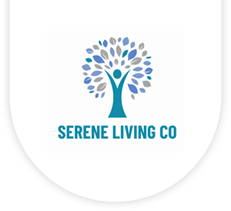Neck Pain Causes, Preventions, and Treatments Explained

A neck has a really important role in the body. Besides supporting the head all day, necks also protect the spinal code. The neck itself is made up of small bones called vertebrae, stacked on top of each other to form part of the spinal column.
Both the structure and the function of the neck are quite delicate and any number of imbalances can end up causing neck pain. Neck pain can be a sign that nerve roots or the spinal cord is at risk or that there is an infection or a disease.

In some cases, medical intervention might be needed to relieve neck pain, but non-medical treatments can be very effective in most cases. Unfortunately, people oftentimes are not aware of effective non-medical treatments and end up seeking medical treatment where a simple treatment might have worked.
Causes of Neck Pain

Neck pain can be either caused by medical or non-medical causes.
Non-medical Causes
The non-medical causes are more common and have a lot to do with the pressure put on the neck during normal day-to-day activities. Some of the non-medical causes include:
- Repetitive motion
- Bad sleeping habits
- Gritting teeth
- Worn joints
- Sports injuries
- Poor posture
- Accidents
- Whiplash
- Carrying a heavy load
Medical Causes
Although uncommon, neck pain can also be a result of medical conditions. These may include:
- Cervical spondylosis
- Arthritis
- Infection
- Tumors
- Abscesses
- Cancer of the Spine
- Osteoporosis
- Herniated disk
- Fibromyalgia
- Spinal stenosis
- Congenital abnormalities
Prevention
It’s possible to prevent neck pain for some type of neck pain. The four best ways to prevent neck pain are avoiding injuries, cervical traction treatments, correct posture, and good sleeping habits.
Avoiding injuries might sound like an obvious prevention method, but it’s a really important one since a lot of neck pain cases are injury-related. It’s possible to avoid injuries by avoiding high-risk activities and wearing the proper protection when engaging in high-risk activities.
Cervical traction helps restore the natural curvature of the neck and by so doing reduces neck-related complications. The treatment is offered by professional physiotherapists but can also be effectively self-administered with a cervical care system like the VertexTrax™.
The correct posture can help reduce the chances of neck pain by relieving muscle strain on the neck. Some examples of good posture include using a chair that allows the feet to be flat on the floor, with the knees slightly lower than the hips.
Good sleeping habits include ensuring the bed and pillow are both the correct level of firmness. The head and neck should be supported so that the head is level with the body in a neutral position. The pillow should also fill in the space between the neck and shoulders.
Treatment
Depending on the cause of the neck pain, there are several options for treating neck pain. Treatments vary from simple self-help treatments to complex medical procedures requiring health professionals.
Cervical Traction
Cervical traction is one of the most effective long-term solutions for neck pain. The therapy can be administered by a health professional such as a chiropractor or a physiotherapist through a number of therapy sessions.

It can also be self-administered using the VertexTrax™ cervical care system, which provides a cheaper and time-saving alternative to treatments from physiotherapists or chiropractors
Pain medication
Over-the-counter pain medication like aspirin, Ibuprofen or Tylenol, can be effective in relieving pain in the short term but might not be able to address the underlying cause of the pain as therapies like cervical traction might. For some serious neck-related conditions, medical professionals might prescribe additional pain medication such as Amitriptyline.
TENS (transcutaneous electrical nerve stimulation)
Transcutaneous electrical nerve stimulation is a therapy that uses low-voltage electrical stimulation to relieve pain by interfering with pain signals from the brain. Physiotherapists usually have the equipment to run this sort of therapy but small battery-driven TENS machines can be found in some pharmacies. VertexTrax™ cervical care systems also come with a TENS function, complete with electrode massage pads.
Acupuncture

Acupuncture is a form of alternative medicine in which a therapist inserts fine needles into specific points into the skin. When used for neck pain, it can relieve pain in the short term by interfering with the signals to the brain. The process might also trigger the release of pain-relieving chemicals in the body called endorphins.
Surgery

In some rare cases, neck pain is a symptom of a much bigger problem that requires surgery to be resolved. It’s rare for neck pain to require serious medical intervention, however, if the neck pain is accompanied by the following symptoms, it’s a good idea to consult a doctor.
- Difficulty breathing
- Pain, tingling, numbness, or weakness in arms or legs
- Headache
- Neck stiffness
- Swollen glands
- Nausea
- Lumb in the neck
- Difficulty swallowing
- Vomiting



